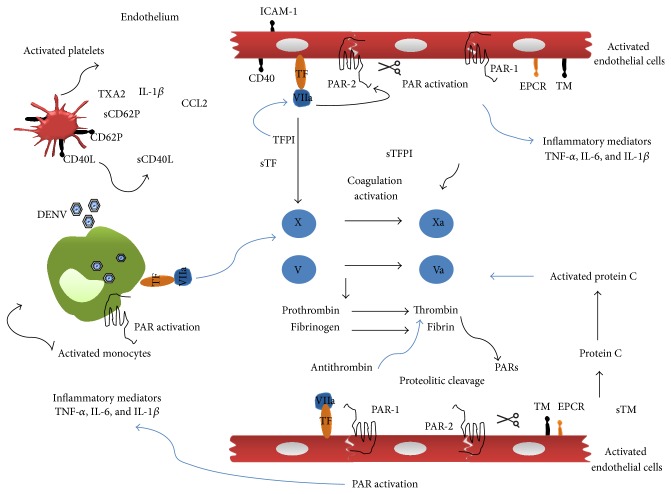Figure 1.
Coagulation and inflammatory response activation during dengue. DENV infection is often associated with coagulation disorders. The coagulation system is activated by the host immune response. The activation of coagulation system leads to the generation of thrombin and intracellular signaling through PAR; platelet and monocyte activation and recruitment; and increased TF expression on the endothelium and monocytes. The following anticoagulant pathways balance this system: the protein C system, antithrombin (AT), and Tissue Factor Pathway Inhibitor (TFPI). Increased CD62P expression in platelets from dengue patients indicates platelet activation and therefore favors homo- and heterotypic interactions with immune cells and endothelial cells. Additionally, CD40L (CD154) expressing platelets can interact with CD40 on endothelial cells, inducing upregulation of adhesion molecule (e.g., ICAM-1), chemokine secretion (e.g., CCL2), and leukocyte recruitment. Evidence of increased circulating TF levels in dengue patients and increased expression in monocytes from severe patients suggests its importance in disease pathogenesis. The release of inflammatory cytokines leads to activation of the coagulation cascade through the TF pathway. Coagulation factors (e.g., thrombin) activate PAR and amplify proinflammatory cytokine production (e.g., TNF-α, IL-1β, IL-6, and CCL2) and leukocyte migration to the infection site. EPCR: endothelial protein C receptor; TM: thrombomodulin.

